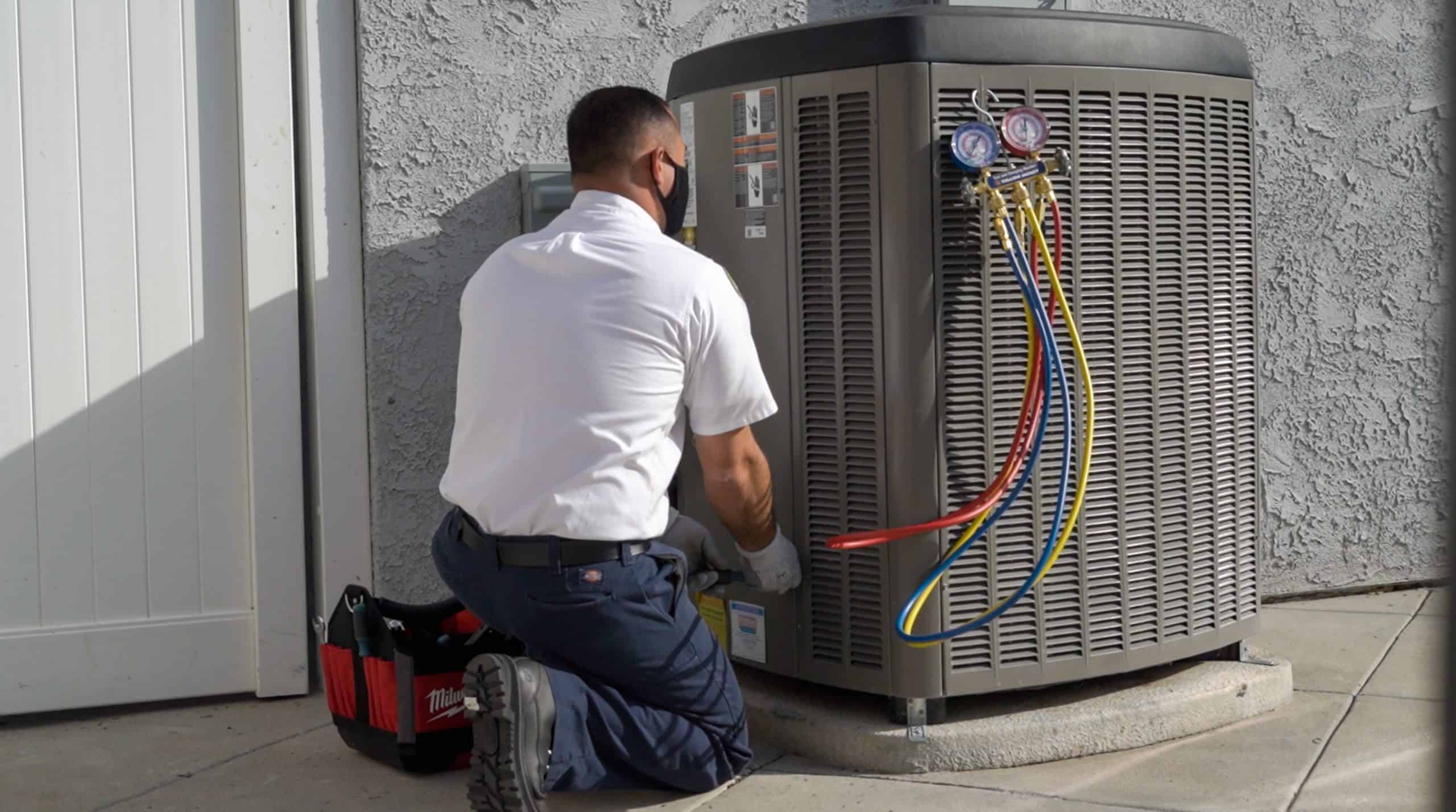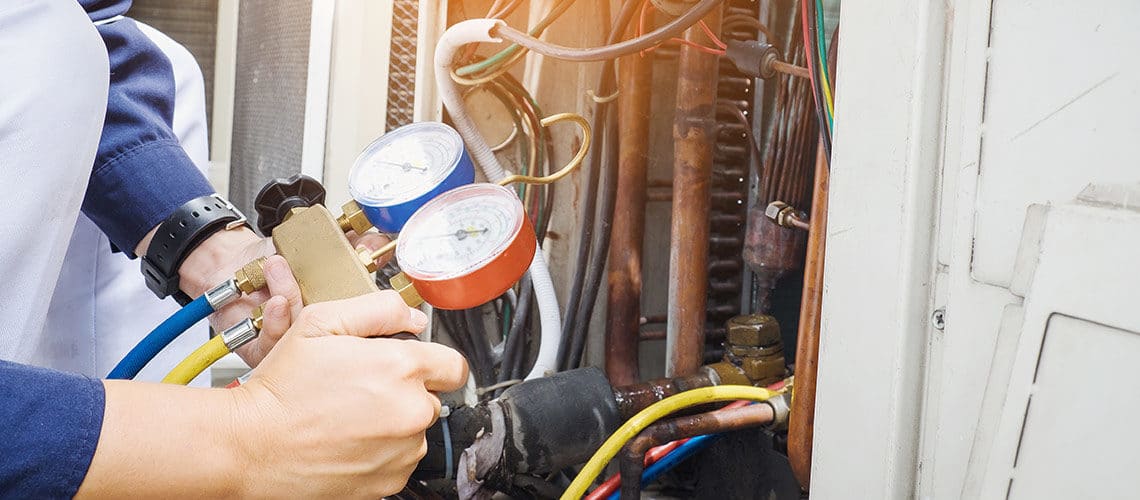Reliable Team at DMAKS HVAC for All Your HVAC Needs.
Reliable Team at DMAKS HVAC for All Your HVAC Needs.
Blog Article
Exactly How to Choose the Right A/c System for Your Demands
Selecting the suitable HVAC system is an important choice that calls for careful consideration of various variables. Begin by assessing your home's dimension, format, and one-of-a-kind needs, as these aspects dictate the necessary ability and configuration of the system. In addition, developing a budget plan that incorporates installation and long-term operational costs is crucial. As you consider your choices, recognizing power performance rankings and the implications of your regional environment will play a significant role in your option. The myriad of system types offered can complicate this process, leading one to wonder which path inevitably leads to optimum comfort and efficiency.
Evaluate Your Home Size
Examining your home dimension is a crucial primary step in picking the appropriate heating and cooling system. The size of your home directly affects the heating and cooling ability required for effective environment control. A heating and cooling system that is too small will certainly struggle to maintain comfy temperature levels, leading to boosted power consumption and use on the system. On the other hand, a large system can lead to brief biking, insufficient humidity control, and ineffective operation.
To precisely analyze your home dimension, measure the square video of each area, thinking about factors such as ceiling height and the layout. Furthermore, think about the insulation top quality and the number of windows, as these aspects affect thermal performance. Homes with open layout might require various system arrangements compared to those with numerous separated areas.
Utilizing the Guidebook J lots calculation method can supply a much more specific price quote of your cooling and heating needs. This method represent numerous factors, including local climate, solar gain, and occupancy patterns. By carefully examining these facets, you can guarantee that your picked a/c system is appropriately sized, resulting in enhanced convenience, power efficiency, and longevity of the equipment.
Determine Your Budget
Determining your budget plan is an essential action in the HVAC system option procedure, as it sets the criteria for your alternatives - DMAKS HVAC. A HVAC system is a significant investment, and recognizing your monetary limitations will certainly aid narrow down choices that fit within your methods
Begin by assessing not just the initial acquisition price however additionally installation expenses, which can differ substantially depending on the complexity of the task. Take into consideration ongoing expenditures such as maintenance, repair work, and energy intake. A system may show up budget friendly originally but can lead to higher prices with time if it is less efficient.
It is recommended to assign a backup fund for unanticipated expenditures that might occur throughout installation or first system adjustments (DMAKS HVAC). Additionally, discover financing options or discounts that might be available, as these can ease the burden of upfront costs
Inevitably, having a clear budget plan enables you to involve with HVAC specialists better, guaranteeing you receive tailored guidance that lines up with your economic objectives and home demands. By being persistent regarding your budget plan, you can make enlightened choices that boost comfort without jeopardizing financial stability.
Evaluate Energy Efficiency
Energy efficiency plays an essential duty in the total efficiency and cost-effectiveness of your Heating and cooling system. Look for systems with a high Seasonal Power Effectiveness Proportion (SEER) for cooling down and a high Annual Fuel Use Effectiveness (AFUE) ranking for home heating.
In addition, take into consideration the Power Celebrity accreditation, which represents that the system satisfies rigid effectiveness standards set by the Environmental Defense Company. Spending in a Power Star-rated a/c system can result in substantial cost savings over time, especially in areas with extreme temperature level variations.
Another aspect to examine is the system's dimension and ability. An oversized or undersized system can lead to ineffectiveness and boosted power prices. DMAKS HVAC. Correct sizing, commonly identified via a Hands-on J load computation, makes sure that the system operates at optimum performance


Consider Climate and Setting
When choosing an a/c system, it is essential to consider the local climate and ecological problems, as these factors substantially influence the system's efficiency and effectiveness. Different regions experience varying temperature level extremes, moisture degrees, and seasonal changes, every one of which influence heating and cooling demands.

In addition, neighborhood environmental elements, such as air top quality and potential allergens, need to inform your selection. Systems equipped with innovative filtering technologies can aid mitigate pollutants and provide cleaner air. Additionally, think about the power sources available in your location-- some cooling and heating systems are extra efficient when powered by natural gas or renewable power resources.
Inevitably, straightening your cooling and heating system choice with your local you can find out more environment and ecological considerations will certainly bring about improved convenience, improved performance, and lower power costs.
Explore System Types and Attributes
As homeowners seek to optimize convenience and efficiency, checking out the various sorts of a/c systems and their one-of-a-kind features comes to be crucial. The primary types of cooling and heating systems include central air conditioning, heat pumps, ductless mini-split systems, and heating systems. Each system uses unique benefits tailored to different needs and choices.
Central air systems supply consistent air conditioning throughout a home, making them ideal for bigger rooms. Heatpump act as both heating and cooling services, utilizing electrical power to transfer warm, which can result in lower energy prices. Ductless mini-split systems are coming to be increasingly popular because of their versatility and simplicity of installment, permitting house owners to control the temperature in specific spaces without extensive ductwork.

Final Thought
Finally, choosing the ideal a/c system requires mindful factor to consider of numerous variables, consisting of home dimension, spending plan constraints, energy performance, regional environment, and available system types. A detailed analysis of these elements ensures ideal comfort and cost-effectiveness. By following a structured technique, house owners can make enlightened choices that align with their specific requirements and preferences, eventually leading to boosted indoor air quality and energy financial savings.
Report this page